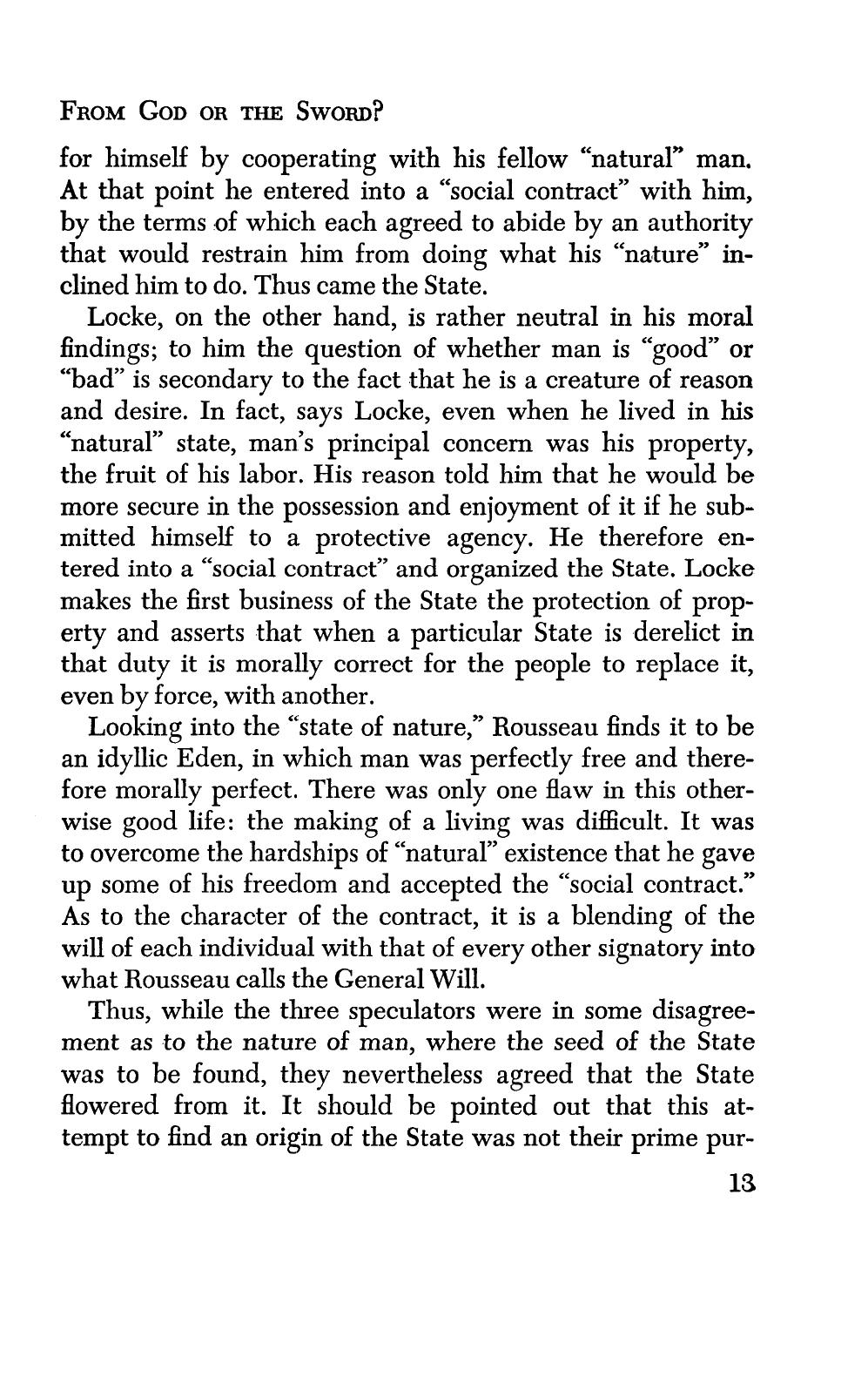From God or the Sword?
for himself by cooperating with his fellow "natural" man. At that point he entered into a "social contract" with him, by the terms of which each agreed to abide by an authority that would restrain him from doing what his "nature" inclined him to do. Thus came the State.
Locke, on the other hand, is rather neutral in his moral findings; to him the question of whether man is "good" or "bad" is secondary to the fact that he is a creature of reason and desire. In fact, says Locke, even when he lived in his "natural" state, man's principal concern was his property, the fruit of his labor. His reason told him that he would be more secure in the possession and enjoyment of it if he submitted himself to a protective agency. He therefore entered into a "social contract" and organized the State. Locke makes the first business of the State the protection of property and asserts that when a particular State is derelict in that duty it is morally correct for the people to replace it, even by force, with another.
Looking into the "state of nature," Rousseau finds it to be an idyllic Eden, in which man was perfectly free and therefore morally perfect. There was only one flaw in this otherwise good life: the making of a living was difficult. It was to overcome the hardships of "natural" existence that he gave up some of his freedom and accepted the "social contract." As to the character of the contract, it is a blending of the will of each individual with that of every other signatory into what Rousseau calls the General Will.
Thus, while the three speculators were in some disagreement as to the nature of man, where the seed of the State was to be found, they nevertheless agreed that the State flowered from it. It should be pointed out that this attempt to find an origin of the State was not their prime pur-
13
